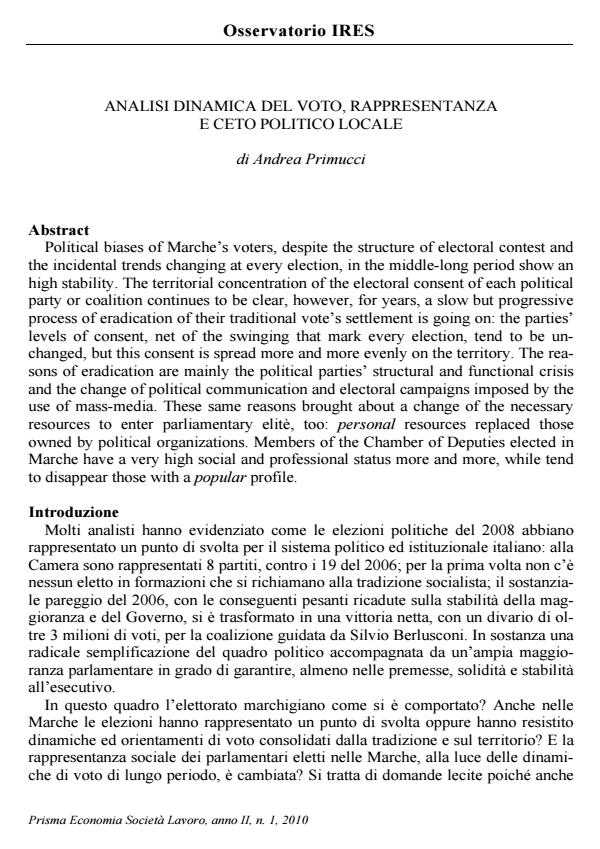Analisi dinamica del voto, rappresentanza e ceto politico locale
Journal title PRISMA Economia - Società - Lavoro
Author/s Andrea Primucci
Publishing Year 2010 Issue 2010/1
Language Italian Pages 17 P. 127-143 File size 271 KB
DOI 10.3280/PRI2010-001011
DOI is like a bar code for intellectual property: to have more infomation
click here
Below, you can see the article first page
If you want to buy this article in PDF format, you can do it, following the instructions to buy download credits

FrancoAngeli is member of Publishers International Linking Association, Inc (PILA), a not-for-profit association which run the CrossRef service enabling links to and from online scholarly content.
Political biases of Marche’s voters, despite the structure of electoral contest and the incidental trends changing at every election, in the middle-long period show an high stability. The territorial concentration of the electoral consent of each political party or coalition continues to be clear, however, for years, a slow but progressive process of eradication of their traditional vote’s settlement is going on: the parties’ levels of consent, net of the swinging that mark every election, tend to be unchanged, but this consent is spread more and more evenly on the territory. The reasons of eradication are mainly the political parties’ structural and functional crisis and the change of political communication and electoral campaigns imposed by the use of mass-media. These same reasons brought about a change of the necessary resources to enter parliamentary elitè, too: personal resources replaced those owned by political organizations. Members of the Chamber of Deputies elected in Marche have a very high social and professional status more and more, while tend to disappear those with a popular profile.
Andrea Primucci, Analisi dinamica del voto, rappresentanza e ceto politico locale in "PRISMA Economia - Società - Lavoro" 1/2010, pp 127-143, DOI: 10.3280/PRI2010-001011